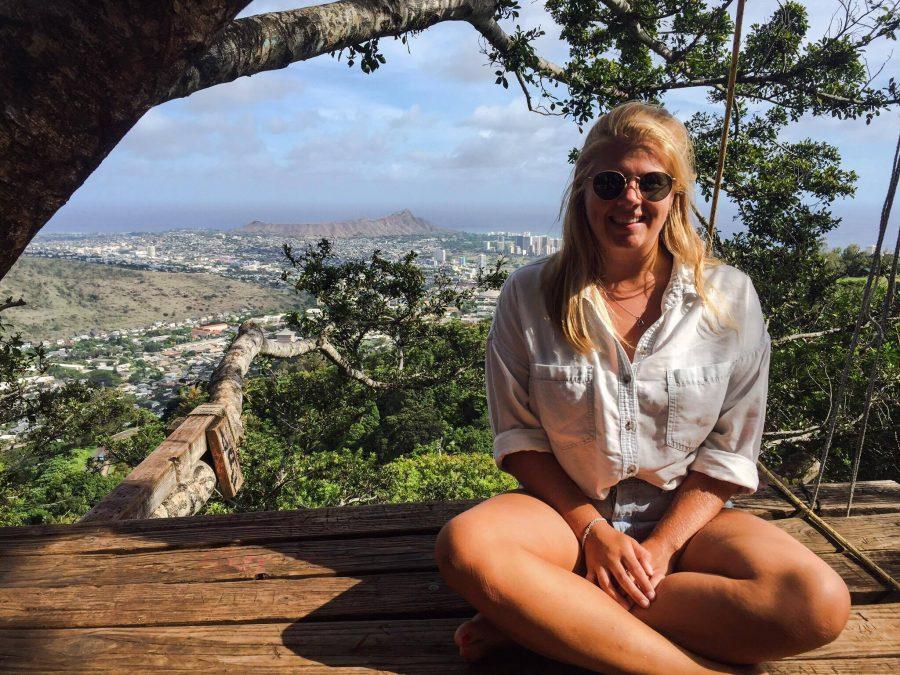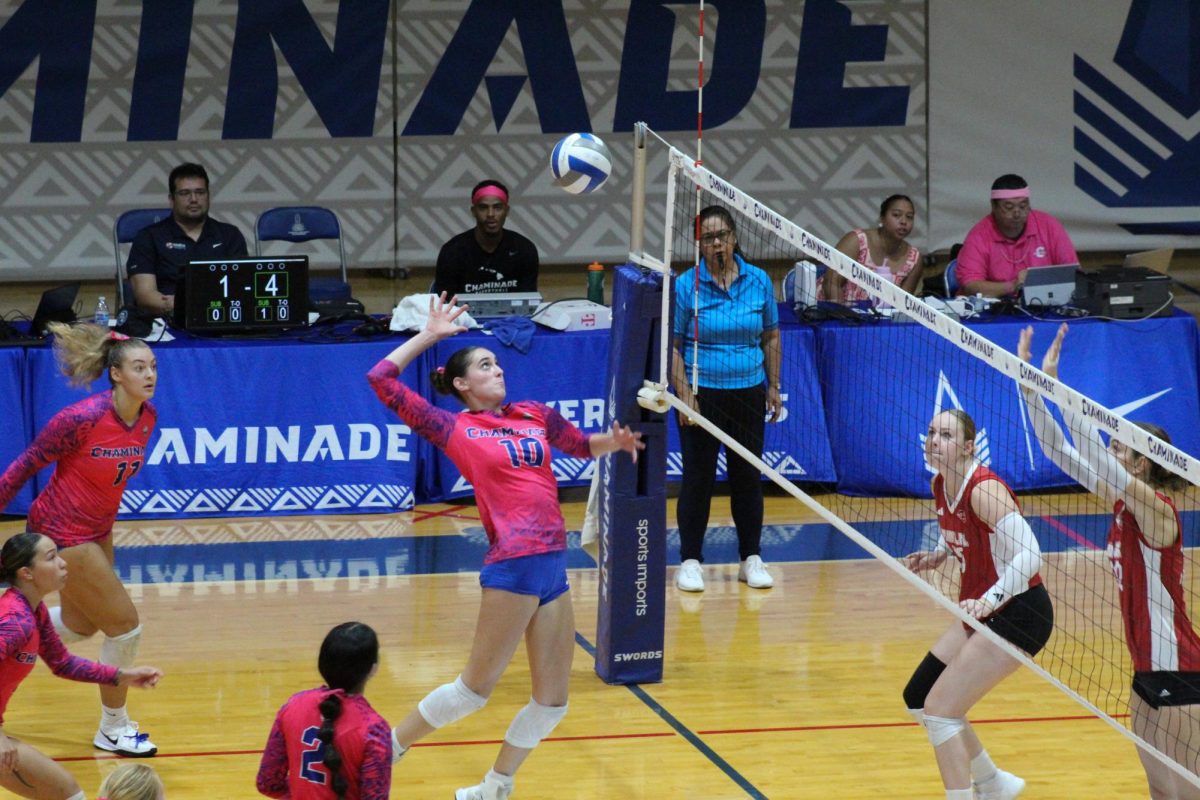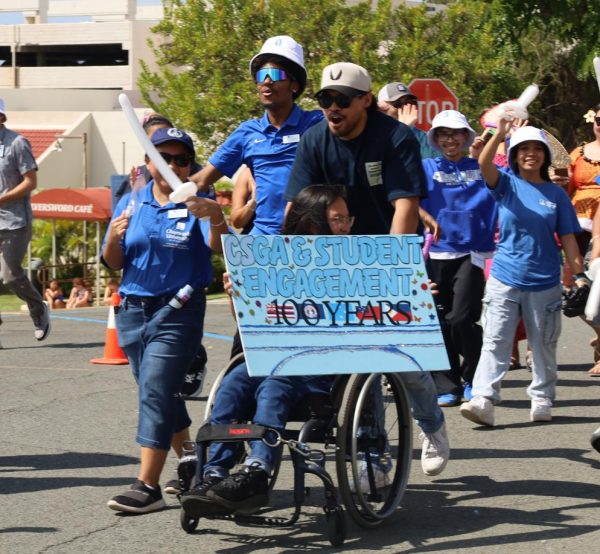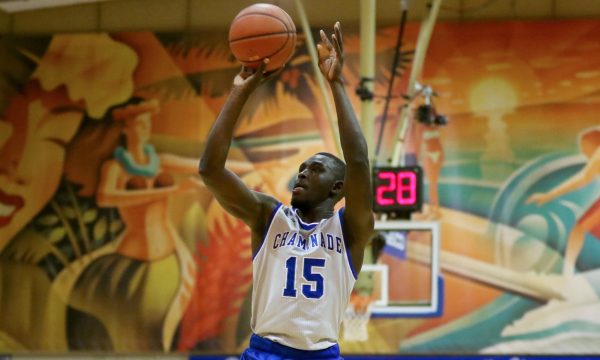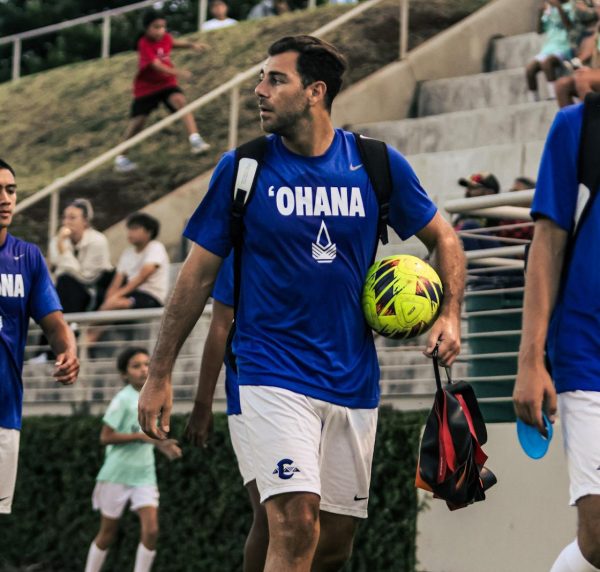Trump might restrict visas for international students
Terese Auby is a Norwegian international student working for MDX Hawaii on an OPT extension.
December 2, 2016
With Donald Trump as the president-elect, current and future international students might not get the chance to stay in the U.S. after graduation to work. During his campaign, Trump focused on how the H-1B visa is used to hire cheaper foreign labor instead of Americans.
The H-1B visa allows U.S. companies to employ graduate level workers in specialty occupations that require theoretical or technical expertise. Trump has especially focused on how the H-1B visa are used to displace IT workers.
In a speech in Ohio in October directed at millennial-age voters, Trump talked about the impacts of hiring foreign workers.
“Companies are importing low-wage workers on H-1B visas to take jobs from young college-trained Americans,” Trump said then. “You’ve been seeing that and you’ve been hearing that. We will protect these jobs for all Americans, believe me.”
The restrictions that Trump might enforce will affect both international students and U.S. companies. Students in specialty occupations hoping to work in the U.S. on a H-1B visa for prestigious companies such as Microsoft or Apple will have that chance taken away from them. It will also be a loss for these companies, as they might miss the chance to hire better-qualified workers just because they are not U.S. citizens.
Another visa that might be threatened with Trump as president is the Optional Practical Training (OPT) extension, which is said to be a backdoor to the H-1B visa. OPT gives undergraduate and graduate students with F-1 status, which is a visa issued to international students who are attending an academic program or English language program at a U.S. college or university, the chance to stay in the U.S. and work for one year on their student visa. To receive an OPT extension the student must have completed or been pursuing their degrees for more than nine months.
Ending these visa opportunities might be good news for American students and professionals, as companies will most likely have to hire American citizens over foreigners in the future, even if they are better qualified.
For many international students, on the other hand, the opportunity to stay an extra year to work is a part of the study abroad experience and gives the student practical experience to complete their education. As an international student with an F-1 status, I find it sad that this opportunity might be taken away from us. I think I will leave the U.S. soon after graduation in May, but I certainly would like the chance to stay if I suddenly realize that I want more time here.
These restrictions will affect a lot of people. Just here in Hawaii there are many international students that might loose their chance to get valuable working experience. University of Hawaii, Chaminade University and Hawaii Pacific University together have a student body of approximately 1960 international students.
Terese Auby is on of these students. She is a Norwegian international student working in the HR department of MDX Hawaii on an OPT extension. She took her graduate degree in HR at Hawaii Pacific University and decided to stay another year to get practical work experience.
“For me, OPT was an opportunity I had to take advantage of,” said Auby. “I see myself really lucky that I could get a chance to work in America for 12 months. It is a great start to get work experience in a subject that you have been studying for so long and that you have experience from a different country when you move back home. If he chooses to end the OPT program, he takes away such a good opportunity for all foreign students in America, and that is really sad.”
